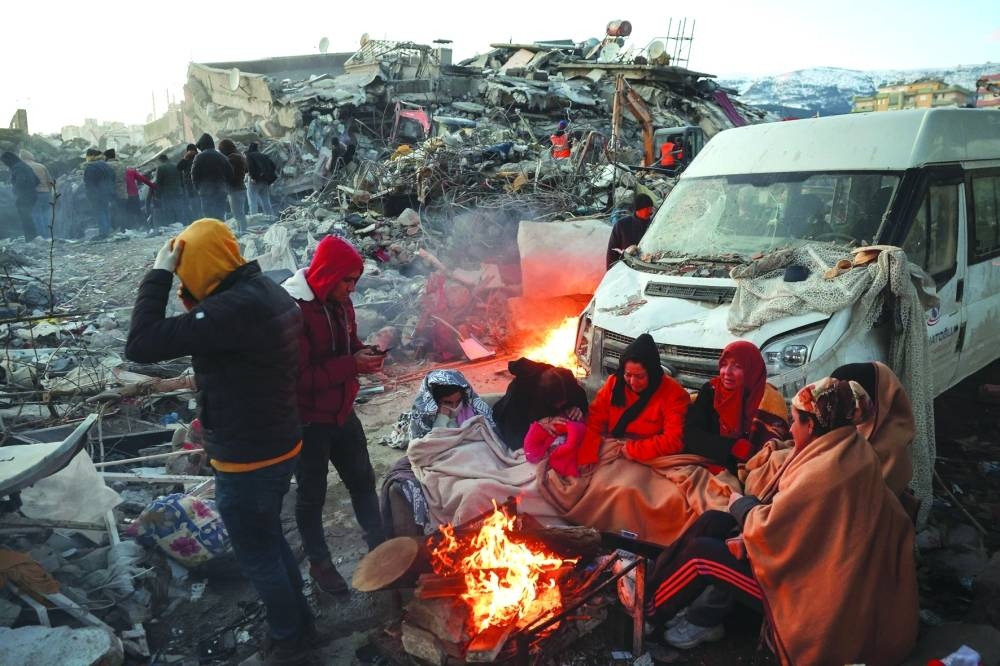Turkish President Recep Tayyip Erdogan Wednesday conceded "shortcomings" after criticism of his government's response to the massive earthquake that killed over 11,700 people in Turkiye and Syria.
The sprawling scale of the disaster that flattened thousands of buildings, trapping an unknown number of people, has swamped relief operations already hampered by freezing weather.
Officials and medics said 9,057 people had died in Turkey and 2,662 in Syria from Monday's 7.8-magnitude tremor, bringing the total to 11,719 -- but that could yet double if the worst fears of experts are realised.
Survivors have been left to scramble for food and shelter -- and in some cases watch helplessly as their relatives called for rescue, and eventually went silent under the debris.
Still, searchers kept pulling survivors from the debris three days after the 7.8 magnitude quake that is already one of the deadliest this century, even as the death toll continues to rise.
Erdogan visited one of the hardest-hit spots, quake epicentre Kahramanmaras, and acknowledged problems in the response.
"Of course, there are shortcomings. The conditions are clear to see. It's not possible to be ready for a disaster like this," he said.
The window for rescuers to find survivors is narrowing as the effort nears the 72-hour mark that disaster experts consider the most likely period to save lives.
Yet on Wednesday, rescuers pulled children from under a collapsed building in the hard-hit Turkish province of Hatay, where whole stretches of towns have been levelled.
The issue of aid to Syria was a delicate one, and the sanctioned government in Damascus made an official plea to the EU for help, the bloc's commissioner for crisis management Janez Lenarcic said.
A decade of civil war and Syrian-Russian aerial bombardment had already destroyed hospitals, collapsed the economy and prompted electricity, fuel and water shortages.

Survivors gather next to a bonfire outside collapsed buildings in Kahramanmaras, Turkiye Wednesday. AFP
